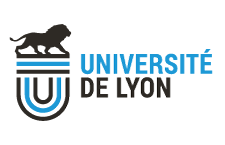Forum infectiologie du CIRI avec Howard Shuman : “Legionellae and their diverse hosts”
Colloque / Séminaire
le 11 septembre 2014 /
Le jeudi 11 septembre prochain à 11h, le CIRI organise avec le soutien du LabEx ECOFECT, une conférence donnée par Howard Shuman du « Department of Microbiology », « Intracellular bacterial pathogens », University of Chicago, USA.

Résumé de la conférence :
Some bacterial pathogens cause disease by growing inside macrophages, the immune cells that are usually capable of destroying infectious agents. One example is Legionella pneumophila. This bacterial species is a common cause of community and hospital acquired pneumonia. Legionella species are ubiquitous in soil and water. It is likely that in nature they grow and survive within amoebae. Legionella's ability to both cause disease and survive in environmental hosts require the same specialized protein secretion system that delivers numerous proteins called "effectors" to both human macrophages and amoebae. Efforts to understand what the "effectors" do at the molecular level after they are delivered to the host cells are complicated by the fact that many appear to have redundant functions. Current approaches to clarify what the effectors do to the host cells include whole genome studies of many different Legionella species with different effector genes as well as using chemicals that alter the physiology of macrophages so that they become resistant to infection.
Date : 11/09/14 à 11h
Lieu : Amphithéâtre Pasteur (RdC Tour Inserm CERVI), 21, avenue Tony Garnier 69007 LYON. Se munir d’une pièce d’identité pour accéder.
A propos de Howard Shuman : https://microbiology.uchicago.edu/page/howard-shuman-research-summary
Contact : Patricia Doublet, patricia.doublet@univ-lyon1.fr
Some bacterial pathogens cause disease by growing inside macrophages, the immune cells that are usually capable of destroying infectious agents. One example is Legionella pneumophila. This bacterial species is a common cause of community and hospital acquired pneumonia. Legionella species are ubiquitous in soil and water. It is likely that in nature they grow and survive within amoebae. Legionella's ability to both cause disease and survive in environmental hosts require the same specialized protein secretion system that delivers numerous proteins called "effectors" to both human macrophages and amoebae. Efforts to understand what the "effectors" do at the molecular level after they are delivered to the host cells are complicated by the fact that many appear to have redundant functions. Current approaches to clarify what the effectors do to the host cells include whole genome studies of many different Legionella species with different effector genes as well as using chemicals that alter the physiology of macrophages so that they become resistant to infection.
Date : 11/09/14 à 11h
Lieu : Amphithéâtre Pasteur (RdC Tour Inserm CERVI), 21, avenue Tony Garnier 69007 LYON. Se munir d’une pièce d’identité pour accéder.
A propos de Howard Shuman : https://microbiology.uchicago.edu/page/howard-shuman-research-summary
Contact : Patricia Doublet, patricia.doublet@univ-lyon1.fr



 Accueil
Accueil Communication
Communication Contacts
Contacts Emploi
Emploi Liens
Liens WebAdmin
WebAdmin